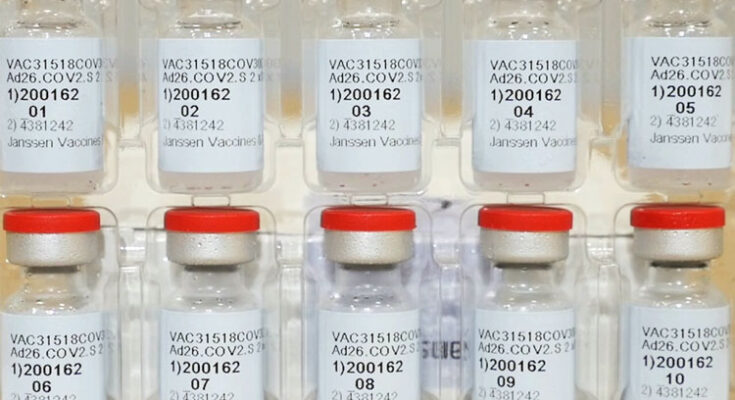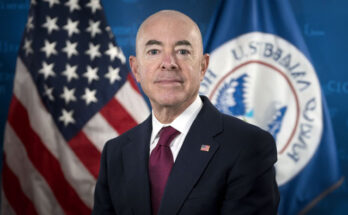Column By Mike Bibb
“Today, I tested positive for COVID-19. I have no symptoms, and I will continue to isolate and follow CDC guidelines. I’m grateful to be both vaccinated and boosted.”
Vice President Kamala Harris, April 26, 2022
Similar statements have been broadcast by other political notables, including former President Barack Obama and Hillary Clinton, who had also been infected by COVID after receiving the vaccines and boosters.
I’m no advertising or marketing expert, but it seems odd some influential folks in Washington are praising the benefits of the COVID injections and boosters, even after they’ve gotten the virus once, twice, or more.
Now, they’re lining up for shot #4. Where’s the logic?
Only inside the D.C. Beltway is a mediocre vaccine celebrated as a howling success. A fully-vaxxed person may still get sick from COVID, or its variants, but at least they’ll have the satisfaction of knowing they were immunized when they got it.
Whereas, an unvaccinated individual cannot boast of this benefit or produce a shot card showing he’s in compliance with recommended CDC procedures. He’ll just have to accept the reality of the situation he might catch COVID from a vaccinated person.
Let’s assume for a minute you were watching a television commercial depicting the amazing cleaning capabilities of Sunami Super Suds, the latest, greatest laundry detergent since the invention of soap.
The ad says it only takes a half-ounce per four gallons of water to whisk away the grime and stains of your dirtiest jeans and socks.
Seems a little unbelievable, but you continue to stare at the screen, eagerly anticipating a like-new pair of Wranglers will magically appear after the final rinse cycle.
What do you know, a like-new pair of Wranglers emerges from the machine – just like the announcer said would happen.
You see the same commercial a dozen times a day – day after day. Finally, deciding to give Sunami Super Suds a try, a visit to the cleaning aisle of your local Big Dollar is on your to-do list. It’s only $17.68 for a 24-ounce bottle.
Returning from the store, you nearly twist an ankle sprinting to the family laundry room, load the washer with your filthiest t-shirts, jeans, dish towels, and underwear, pour in a half-ounce of liquid Sunami, turn the machine dial to wash, and wait 36 minutes for the results.
The longest 36 minutes of your life.
Yanking the jeans out of the washer, you sadly discover the clothes are cleaner but the colors remain faded and the fabric still shows wear in various areas. Even the torn pocket on your favorite blouse is still sagging, frayed threads randomly protruding from its seams.
Bummer, “‘These don’t look anything like the clothes in the commercial,’ you think to yourself. ‘Maybe if I washed them again, they’d look better.'”
After a while, you sadly admit no matter how many times you launder the apparel, it is not going to look newer or get any cleaner, regardless of what the actress on the Sunami Super Suds commercial assures you.
You’ve just experienced the convincing power of visual and subliminal persuasion. The entire advertising industry is predicated upon it. Enhance the positives of a product while ignoring the negatives.
We’ve seen this scenario play out with COVID vaccines. In the beginning, our government leaders and health officials pledged that various vaccines would protect us from the coronavirus. Just two jabs in the arm of the experimental concoctions should do it.
Unlike most pharmaceutical ads, there are no announced warnings of possible side effects. That, in itself, should’ve caused alarms to go off.
Then, it was necessary to return for a booster. A couple of months later, another booster was recommended.
Unexpectedly, we were casually informed a third shot was necessary. Back to the health clinic we trudged, content this would be the final time.
By then, needle tracks on our arms resembled that of a heroin junkie.
Strangely, we began hearing rumors people were still getting COVID after being repeatedly vaccinated and boosted. Unanticipated side effects were reported. Some deaths, too.
What the heck was going on? Surely our leaders and pharmaceutical companies would not deceive us into believing and reacting to a cleverly promoted sales pitch just to influence their authority and corporate bottom line?
No one would be that cruel. Could they?
Think again. These are the same people for nearly two years locked-down schools, businesses, churches and imposed multiple restrictions on practically every facet of our lives — in the name of keeping us safe from each other. The economy was thrown into a tailspin.
Yet, the virus lives on, in spite of all the mandates, vaccines, and shallow promises. Daily TV ads continue to promote the acclaimed effectiveness of the shots and anyone, as young as five years old, should receive them we’re advised.
Oh, I thought we were originally told young children and preschoolers were virtually immune to COVID. Now, the storyline has changed again and tots need the shots.
The rest of us, of course, should be preparing for injection #4. Then #5, #6 #7, on and on.
In the meantime, Chief Medical Adviser to the President, Dr. Tony Fauci, believes our courts and the legal system shouldn’t interfere with decisions made by him and other public health officials. That, somehow, he and his associates are smarter than everyone else and should be above lawful examination.
Only a super-narcissist would reason like this. As often seen, Dr. Tony has no problem blowing his own horn, regardless of the documented inconsistencies of his statements.
After all, a true salesperson doesn’t let facts get in the way of a good promotional. No matter how faulty the product may be.
The opinions expressed in this editorial are those of the author.









